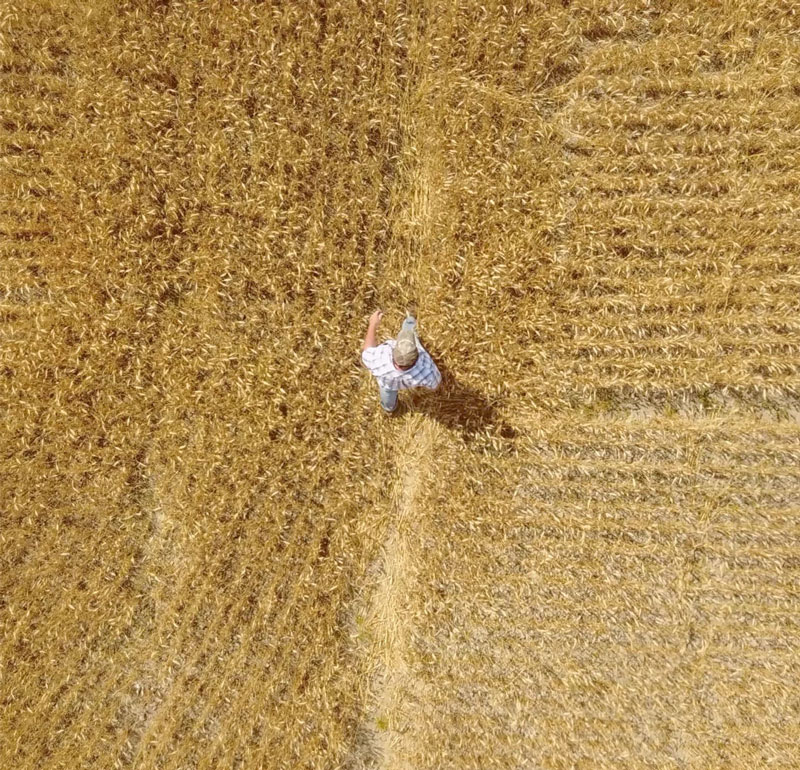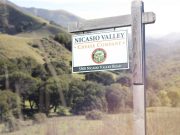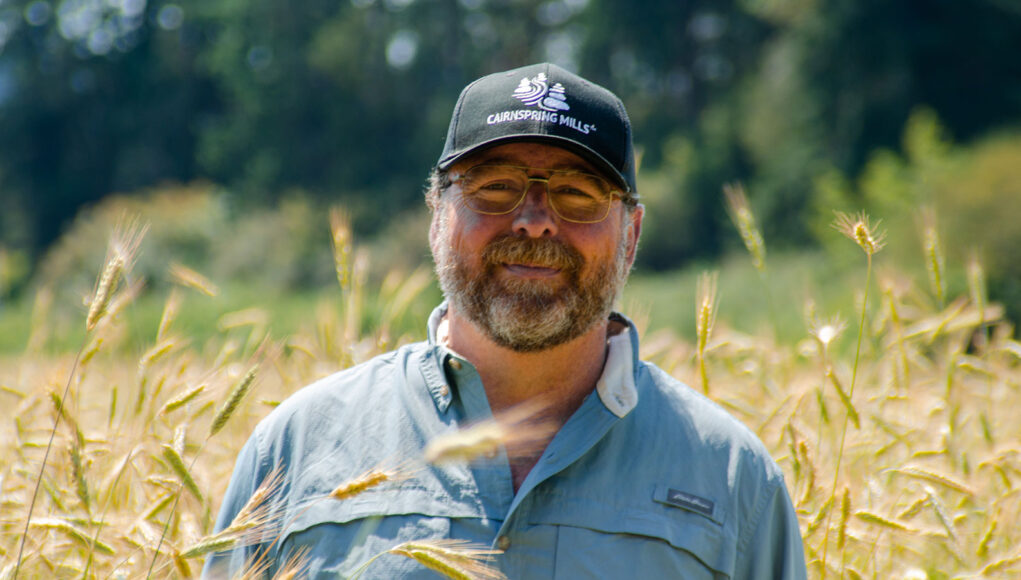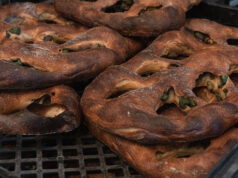Cairnspring Mills is revolutionizing the universe of old-world-new-world baked goods one bag of flour at a time.
With a passionate and ambitious mission of sparking a global movement, Cairnspring Mills, located in the Skagit Valley in northwest Washington state, is building regenerative food systems that lift farmers out of a commodity system by producing healthy, flavorful flours made from identity-preserved grains.
The practices of Cairnspring Mills are deeply rooted in being in harmony with the flavor of their grains and sustainability of their soils, unlike commodity grains that test simply for yield or protein. The grassroots company co-founded by Kevin Morse in 2016 has become the cornerstone of turning flour procurement back to its wholesome beginnings by sourcing specialty grains producing exceptional flavor in breads and baked goods while being naturally nutritious and easy to digest as nature intended.
 Beyond being the ultimate flours in terms of deliciousness and health for humans, Cairnspring Mills grains are, wait for it…better for the planet. For example, their Trailblazer Bread Flour is made from grains known to have superior disease resistance, which is especially important in wetter climates such as Skagit County. It also produces a dark, rich crust and a rustic, earthy crumb that is so useful in hearth loaves. Another varietal with tremendous flavor, color and resilience is Cairnspring Mills’ Organic Skagit 1109 Specialty Flour, bred naturally by their neighboring Washington State University Bread Lab.
Beyond being the ultimate flours in terms of deliciousness and health for humans, Cairnspring Mills grains are, wait for it…better for the planet. For example, their Trailblazer Bread Flour is made from grains known to have superior disease resistance, which is especially important in wetter climates such as Skagit County. It also produces a dark, rich crust and a rustic, earthy crumb that is so useful in hearth loaves. Another varietal with tremendous flavor, color and resilience is Cairnspring Mills’ Organic Skagit 1109 Specialty Flour, bred naturally by their neighboring Washington State University Bread Lab.
The epitome of pro-local farmer, Cairnspring Mills buys directly from their friend-farmer community who are committed to soil health. Cairnspring Mills farmers are contractually prohibited from using glyphosate as a harvest aid, and from using neonicotinoid-coated seeds due to their documented harmful effects on humans, pollinators, and wildlife. This band of integral farmers are also paid a premium over the prices they get in the commodity markets to ensure they are more than fairly compensated for the superior product they grow for Cairnspring Mills.
Committed to being completely traceable with their identity-preserved grains, Cairnspring Mills stores their wheat locally in small-scale grain silos. Each varietal is stored separately, and their wheat is never blended with commodity wheat or any other wheat they didn’t buy directly from the grower. This commitment to identity preservation and traceability does come with tradeoffs. Whatever they take off the fields at harvest time needs to sustain their customers until the following harvest. If they get a spike in demand, they can’t call a commodity grain broker to replenish their silos. However, they believe this is a worthwhile tradeoff because it is core to the unique flavors and quality baked goods that Cairnspring Mills is able to generate with their flours.
Cairnspring Mills utilizes stone-milling technology rather than relying on technology that’s standard for industrial flour mills. Stone-milling requires more attention and craft, and the buzz in the bakeries is that Cairnspring Mills’ flour offers superior texture and flavor.
With a unique mill that utilizes both rollers and stones, Cairnspring Mills’ grain is tempered for 24 hours before it enters the mill and allowed to pass through the rollers to make more readily available the essential bran, germ, and endosperm of the grain to be milled into the finished product, and then passed it through the stones twice. This allows them to maintain the natural nutrition and flavor of the grain. All Cairnspring Mills’ flours retain more of the bran and the germ. The germ is particularly important because it is where many of the nutrients, antioxidants, oils, and flavors are stored. Industrial mills remove this germ to create an extended multi-year shelf-stable product. Cairnspring Mills is milling fresh flour with a 12-month shelf life to preserve flavor and nutritional advantages.
CW Magazine caught up with enigmatic Cairnspring Mills CEO Kevin Morse (an experienced farmer and naturalist in his own right) to get to the heart of why the greatest artisan bakers in the nation are singing his praises.
Kevin, you grew up in an Italian-American family where you first experienced authentic food playing a central role in society and in life in general. Please share how this formed you as a person and purveyor.
You know, my grandparents and great grandparents were Italian immigrants from southern Italy, the Calabria area in Sicily. Being farmers with ten kids, the ability to grow their own food in America, which was not possible in the part of Italy they came from, was essential for them. A great gift my grandparents passed down to us was the opportunity to not only to sustain ourselves but to pursue education. This was really at the core of what gave my family a beginning in this country; the ability to elevate ourselves and pursue things our grandparents could never have gotten where they came from.
Then of course in the Italian culture you have family dinner every Sunday. The pot of tomato sauce is on the stove, the family gathered; uncles and aunts and cousins all show up. I always loved that. It gave me the feeling of security and safety, like I was part of something special. This really instilled in me the importance of ritual and family.
I remember asking my grandfather what life was like during the Great Depression and he replied saying, ‘Not much changed because we had a big family, we had a farm, and we could feed ourselves. This gave us the ability to also feed our neighbors and take care of our community; those who weren’t as lucky as us.’
Ever since childhood, I’ve been trying to recreate the food system and the sense of community and connectivity that I had with my family because they realized the importance not only for their own wellbeing and nourishment, but that of the larger community.
So, you had a kind of ‘flour-power’ revolution prediction?
Not exactly. You know, when we started this mill, I was one of the original skeptics when people were talking about a mill and better flour. And then I visited our neighbors at the Washington State University of Redlands who were breeding and testing grain varieties that weren’t commodity grains, and that grew well in our environment. And I was absolutely blown away by not only flavor, which was the first thing I noticed, but the diversity of grains that were available for different applications. I immediately got very excited about it. I hate to say this, and hopefully my mother will forgive me, but the bread and the pizza that they made with these grain varieties was beyond anything I ever tasted growing up.
The folks at W.S.U. were really helpful in helping me understand what the possibility was in terms of grains and also the importance of choosing grains that were disease resistant, but that would also still yield well for the farmer, and finally that also possess flavor and aroma. You have to know that these elements are not part of the sourcing criteria for large industrial mills. For those, it’s the cheapest grade possible. Protein levels don’t matter or where it came from or how it was grown. So I learned there is a better way to grow and produce flour for bakers and for the home bakers well. I literally had a re-education, as well.
This ‘re-education’ is inspiring a baking evolution with the greatest bakeries and pizzerias clamoring for your flours including pastry god Chad Robertson founder of acclaimed Tartine Bakery, Chris Bianco of Pizzeria Bianco, and tenacious up and comer Jyan Isaac of Jyan Isaac Bread (also featured in this edition of CW Magazine.) When you started all of this, did you foresee such a high level of success and celebration for your flours?
Not initially to be honest, because most people thought we were crazy. ‘Really, you’re going to try to do something to a commodity flour market where there’s cheap product available everywhere?’ That was the general consensus. Initially, it was just the bakers in our community that started sharing their love of our flours by word of mouth. We didn’t have any kind of marketing. I was amazed at how fast the word spread, how much unsolicited help we got from the bakers and the bread lab and the farmers. This really was like an old-fashioned barn raising, everybody pitched in. The community was the foundation. I continue to be amazed at the flavor, quality and taste of the bread and pizza that people like Chris Bianco are turning out with our flour. This was a revelation for all of us.
















